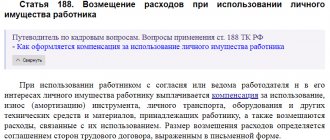The structure of offenses in the financial sector changes every year. Statistics show that modern computer technologies are increasingly used to commit crimes. One of the vulnerable areas is the use of bank plastic cards. Illegal payments or cash withdrawals from ATMs are regularly detected in Russia.
Criminal liability has been established for illegal circulation of payment funds under Article 187 of the Criminal Code of the Russian Federation. Let's look at the cases in which it occurs and what threatens attackers.
Comments on Article 187
Types of cards – credit and payment. Payments using plastic cards are the most promising and widespread way to pay for goods and services. It is also a convenient and safe way to store money. There is no need to carry cash to purchase a product, and losing a card does not mean losing money. The card is password protected, and protection is provided by modern technologies. But criminals are looking for new ways to hack cards. For such an offense, Article 187 applies.
Comments to it:
- The crime affects the interests of the owners of property or money. The public danger lies in the encroachment on the foundations of economic security and stability of the state's financial system. The act disrupts the procedure for non-cash payments and the full functioning of the market institution.
- The crime is serious. The composition is two-objective - harm is caused to the interests of the owner and the state.
- Subject: counterfeit cards, payment documents that are not securities.
- Cards differ in manufacturing technologies and scope of services. The main regulatory act establishing requirements for card issuing organizations is the regulation of the Central Bank.
- Payment card - a bank card for use under an agreement, managing money in an account within the limit. Spending or authorization limit is the amount of money available to the holder for a certain time to carry out transactions.
- Credit card - a card, when using which the holder can carry out transactions in the amount of the credit line and within the limit.
- There are corporate cards. Corporate – a bank card that conducts transactions on a legal entity’s account. There is criminal liability for counterfeiting both types of cards. Settlement corporate – allows the holder to use funds in the legal entity’s account within the limit. Corporate credit – allows you to carry out operations in accordance with the terms of the agreement.
The subject of the crime may be documents that are not securities. But based on them, you can make a payment for the amount specified in the document.
Production of payment documents – partial forgery, production of completely false documents. The production of cards is a high-tech process, achieving such characteristics that allow it to be used for non-cash payments. Selling an item - donation, lending, any method of alienation.
The crime is completed at the moment of production for the purpose of sale. The subjective side is the fault of direct intent. Purpose is a mandatory attribute. This should be a sales goal. If it is not there, there is no corpus delicti. Subject is an individual over 16 years of age.
Part 2 specifies the qualifying circumstance - a crime by an organized group. The object side includes the same crimes as under Article 186, with the exception of storage and transportation of counterfeit items. The subject of the crime is also a prepaid card - it is made for transactions on one’s own behalf, certifying the holder’s right to demand payment for goods or the issuance of cash. It applies to other payment documents. The latter also include payment orders and demands. For payment orders, the bank undertakes, on the instructions of the payer, at the expense of funds in his account, to transfer the amount of money to the account specified in the order within the time limits established by law.
Cash receipts are not considered payment documents. Sales do not include the use of a card or document, since actual possession of the card does not result. The sale of counterfeit cards and documents is qualified under Article 159 if they are obviously unsuitable for use.
Article 187 of the Criminal Code of the Russian Federation: history and content
Article 187 of the Criminal Code of the Russian Federation appeared in Russian criminal legislation in 1996. At first it was called “Production or sale of counterfeit credit or payment cards and other payment documents.”
It was added to the code because with the development of information technology, new areas of activity appeared that needed to be protected at the legislative level .
According to the first edition of the article, it was criminally prosecuted for the production or sale of counterfeit credit or payment cards , as well as other payment documents not related to securities.
Latest changes to Art. 187 of the Criminal Code of the Russian Federation occurred in 2015. Then the article was renamed “Illegal circulation of means of payment.” Changes have also been made to the content. Criminal liability has been established for the production, storage, transportation and receipt for use or sale, as well as the sale itself :
- counterfeit payment cards;
- fake orders for the transfer of funds, documents or means of payment (except for counterfeit money and securities);
- electronic means and storage media, devices, computer programs for illegal money circulation.
Note : The circulation of funds refers to their receipt, issue and transfer.
Responsibility
Let's consider how illegal circulation of means of payment is punished :
| What are they punished for? | How to punish | Rule from the Criminal Code |
For production, storage, transportation and acquisition for use and sale, as well as for distribution:
|
| Part 1 art. 187 of the Criminal Code of the Russian Federation |
| The same actions, but committed by a group of people. |
| Part 2 art. 187 of the Criminal Code of the Russian Federation |
The severity of the punishment depends on the presence of aggravating circumstances . Among them is the commission of illegal circulation of means of payment by an organized group of persons. In this case, criminals face harsher punishment - up to seven years in prison with a fine of up to 1 million rubles.
It can be useful:
How to protect yourself if fraudsters withdraw money from your card
Banking fraud
Object and subject of the crime
Who is committing a crime and against what? The object of production or sale of illegal means of payment - the procedure for circulation of means of payment . It is important to distinguish between illegal circulation of means of payment and counterfeiting of funds.
In counterfeiting, banknotes - paper bills, metal coins or securities - are directly counterfeited. And in case of illegal circulation of means of payment, means of payment with the help of which non-cash payments are carried out are counterfeited.
The subject of the crime is a person . A sane individual who is over 16 years old is brought to justice.
Subject of the crime
Let's consider what is the subject of a crime under Article 187 of the Criminal Code of the Russian Federation. With the comments everything will become clear to you:
| Subject of the crime | A comment |
| Fake payment cards | The offense is committed in relation to three types of payment bank cards:
|
| Fake money transfer orders | Which money transfer orders are forged:
|
| Fake documents or means of payment | The legislation does not have an unambiguous interpretation of the terms. In practice, counterfeit documents or means of payment include, for example, store gift cards. They are not considered bank cards, but they are used to pay for goods in the store that issued the card. |
| Electronic media, tools, computer programs and technical devices intended for illegal circulation of money | This category includes flash cards, tablets, mobile phones, computer equipment and other means, as well as programs through which violators gain unauthorized access to manage bank accounts. |
Commentary to Art. 187 of the Criminal Code of the Russian Federation
Article 187 of the Criminal Code of the Russian Federation describes the methods of committing an offense:
- production of counterfeit means of payment;
- their transportation;
- their storage,
- their sales.
The method is alternative, that is, the commission of a crime can be expressed in the commission of any of the listed actions, or can be expressed in one or several ways at once.
The Criminal Code includes, first of all, cards, credit and payment means of payment. In addition, these can be any documents that do not have the properties of securities. As a general rule, documents should be regarded by the bank as an order to make a payment. This category includes computer programs, electronic media, as well as any other devices for carrying out electronic monetary transactions.
Among such devices are ATM keyboard overlays that allow you to save credit card passwords, password generators, and miniature devices similar in function to payment terminals.
The most common case is, of course, the use of fake bank cards. The issue of bank credit and payment cards and their distribution can be carried out only by relevant organizations in pursuance of the Regulations of the Central Bank of December 24, 2004.
The crime encroaches simultaneously on two objects - the interests of the state in terms of establishing the procedure for issuing means of payment, as well as the interests of the owner, if damage was caused to an individual using counterfeit credit cards.
The production of counterfeit means of payment means both the introduction of false information into the originals and the production of counterfeits, which is called “from scratch”.
Sale is the transfer, paid or gratuitous, of a counterfeit means of payment to another person. An analysis of the Resolutions of the Plenum of the Supreme Court allows us to conclude that if theft is committed using a counterfeit credit or payment card. Such an action cannot be considered a sale, since the card itself does not leave the control of the guilty person.
Also of interest are the issues of distinguishing this crime from fraud. Judicial practice adheres to the point of view that if a person, when using a counterfeit means of payment, misleads an employee of a banking or trade organization, for example, by signing instead of the legal owner of the card on a check, then such actions will be correctly qualified under Art. 159 of the Criminal Code of the Russian Federation.
Also, the sale of products that are obviously unsuitable for their intended use should be considered fraud.
The offense is considered completed if at least a single payment card or document has been produced or sold. The purpose in the case of manufacturing is a compositional feature. Manufacturing must necessarily be for the purpose of sale, otherwise criminal liability does not arise.
From the subjective side, direct, specific intent must be proven. For a correct legal assessment, the motives of the perpetrator’s actions do not matter much. A person who has reached the age of sixteen and who does not have any mental defects that preclude sanity may be charged as an accused.
The article also contains a second part, establishing liability for illegal trafficking as part of an organized group.
The Criminal Procedure Code classifies this offense under the jurisdiction of investigators of internal affairs bodies; in practice, such cases are conducted by investigators from department “K”, created to investigate crimes related to computer technology.
Illegal circulation of means of payment
1. Production, acquisition, storage, transportation for the purposes of use or sale, as well as the sale of counterfeit payment cards, orders for the transfer of funds, documents or means of payment (except for the cases provided for in Article 186 of this Code), as well as electronic means, electronic information carriers, technical devices, computer programs intended for the unlawful reception, issuance, transfer of funds -
shall be punishable by forced labor for a term of up to five years or imprisonment for a term of up to six years with a fine in the amount of one hundred thousand to three hundred thousand rubles or in the amount of wages or other income of the convicted person for a period of one to two years.
2. The same acts committed by an organized group, -
shall be punishable by forced labor for a term of up to five years, or imprisonment for a term of up to seven years, with or without a fine in the amount of up to one million rubles or in the amount of the wages or other income of the convicted person for a period of up to five years.
What does judicial practice show under this article?
Judicial practice under this article is not extensive, because more and more bank cards are receiving very reliable protection against counterfeiting. Fraudsters find it difficult to keep up with modern technology, so they use other methods of counterfeiting or stealing money.
Examples of cases:
- Citizen P. tried to pay for expensive food products with a card in a store. The terminal did not work, so the purchases were unsuccessful. Security drew attention to the citizen and called the police to verify her identity. It turned out that P. tried to pay for purchases with a fake card, which she made with her programmer husband. The investigation found that they provided card production services to other citizens. P. and her husband were arrested. The court sentenced them to 5 years in prison each.
- Citizen E. tried to get money from a payment document at the bank. The operator noticed that the document was suspicious, she called the security, and they called the police. E. was interrogated and admitted that he had forged a document in order to enrich himself at the expense of the bank. He was put on trial and investigated. At the trial, he received fines and compulsory labor, and a suspended 2-year prison term.
- Citizen V. worked at a bank in the department for issuing credit cards. She used them to enrich herself, falsified documents to obtain them, and then did not return the money. This was discovered, she was arrested, and an investigation began. The court decided to classify the case under Article 187, but since she did not falsify the card itself, V. was accused of fraud. She was given 5 years in prison.
What decisions are most often made under Article 187?
Cases under this article often end in guilty decisions. In 2017, 43 cases were processed through it, of which 40 were in 1 part. Of these, 1 person was acquitted, 7 were deprived of their freedom. 31 received suspended sentences, 1 received a fine.






